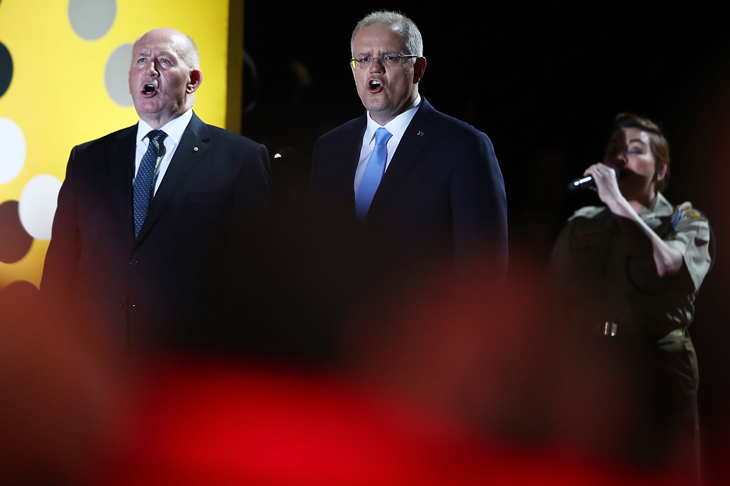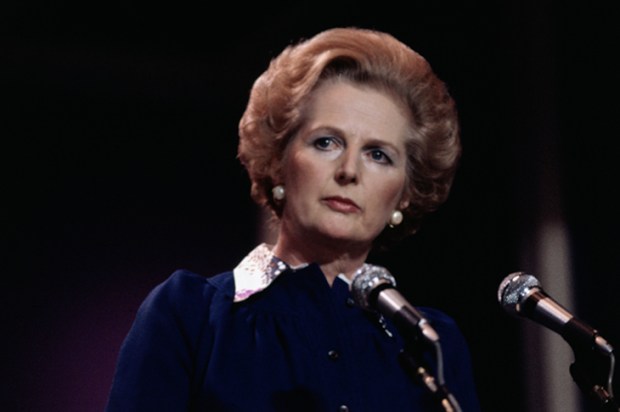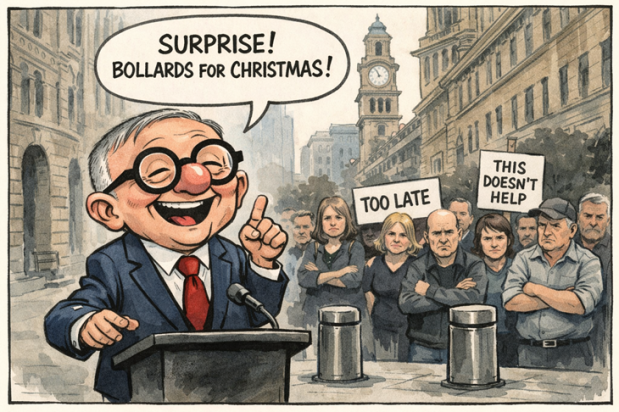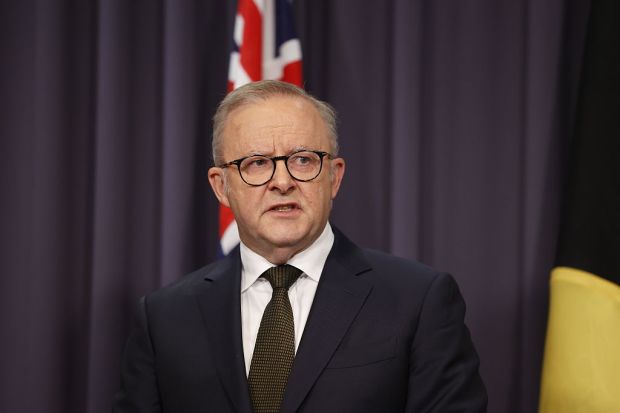So here’s a big picture question for all of you readers who see yourselves as generally being right-of-centre voters. What do you think is the best strategy to adopt for this Morrison Coalition government?
Here are the two choices. Option a) is to go down the route suggested by, amongst others, Paul Kelly and former Prime Minister John Howard. You aim for the middle ground. You label yourself as the ‘sensible centre’ and so try for middle of the road policies. Don’t jettison the Paris Agreement, but don’t go full steam ahead either. Do all that you can to cut electricity prices by going after the big generator companies, but don’t slash the billions of dollars per year that still flow in subsidies to the renewables rent-seekers. Don’t cut back publicly and significantly on Australia’s world’s highest per capita immigration intake, but maybe cut it back a bit here and there so as to be able to point to a downwards trend. Don’t scream blue murder about the patent bias of the ABC, while threatening significant cuts to its billion dollar a year taxpayer largesse and imposing a total ban on all Coalition MPs from appearing on any of its current affairs shows. But perhaps take some potshots here and there at the left-leaning slant of what does and doesn’t get aired and at the fact that it is still true that not a single, solitary TV current affairs producer, presenter and ‘high-up’ has a right-of-centre pedigree. Don’t pursue s.18C hate speech law repeal, but make it clear that while this is a third-order issue for you it’s also the case you weren’t thrilled at what happened to the QUT students and to Bill Leak.
You get the idea. Option a) counsels the softly, softly approach not just to election campaigning but also to packaging and selling the Liberal party. It’s not unfair to see it as a more respectable and robust version of the Mark Textor strategy of parking yourself not too far to the right of Labor and hoping most of your base voters, however resignedly, will give you the tick once in the ballot box. And it’s true that option a) allows the Liberal party to move further away from Labor than did the minimalist Textor tactic. Nor is it a self-evidently poor idea. How close a right-of-centre political party ought to position itself in relation to its main left-of-centre competitor is nowhere carved in stone. It depends. And it depends not least on where that opposition left-leaning political party happens to be at the moment – is it, say, a Keating-type Labor party or more a Julia Gillard or Gough Whitlam one? It depends, too, on whether the Liberal party’s core beliefs and principles can be upheld and furthered at whatever particular spot on the political spectrum happens to have been chosen to play the role of ‘the sensible centre’ – remembering always that ‘centre’ is a relative term; it’s not stationary; it moves and varies depending on what the other parties’ positions happen to be at the moment.
Then there’s option b). This is the ‘create a chasm, a huge yawning chasm of difference, between us and them’. On this strategy you give the voters not some circumscribed menu of comparatively miniscule differences with the other side (‘Will that be 26 per cent renewables for you sir, or would you like your Paris served somewhat stronger?’), you give them really big policy differences that no one can gloss over. You pull out of Paris altogether. You make big cuts to the immigration rate. You end all renewables subsidies. You put repeal of s.18C to the Senate again and again (and for what it’s worth, in my view the best guarantee of religious liberty is not some idiotic rights-related statute or worse, it is repealing or removing existing restrictions on free speech so those with a religious worldview are as free as anyone else to speak their minds). The list goes on.
Now option b) is a higher risk strategy, no doubt. You will immediately be labelled ‘far right’, even by people who know this is a patently ridiculous claim – that opting for what was common practice under the John Howard government somehow puts you in the same league as Benito Mussolini. So you will have to call it out for the polemical idiocy that it is and demand that those using the label point specifically to what it is they claim is ‘far right’. And of course it is true that you will lose some voters who currently reside right on the political dividing line. But you will also gain voters. And you will gain a great deal of net enthusiasm from the voters you already have.
Now here’s the thing. If you look around the democratic world at the moment it is patently clear that option a) is not working for right-of-centre parties. In the US McCain and Romney were the perfect option a) types. They lost. (And indeed were pilloried by the left-leaning press.)
But Donald Trump and his campaign were nothing other than option b), arguably on steroids. As an aside, what you learn is that if the press is going to pillory someone as upstanding as Mitt Romney you might as well go for the street brawler Trump type where attacks on the man’s character are pointless, you’ve made them a sunk cost.
Or look at the recent provincial elections in Canada. In the biggest province by far Doug Ford ran for the Conservatives on a pledge to cut all renewables subsidies, to have nothing to do with a carbon tax, to reject the Trudeau immigration line, and a lot more. Despite wall to wall dislike from the press Ford won a huge majority. A not too dissimilar sort of right-of-centre party won bigly in Quebec a while later.
Meanwhile the archetypical centrist of them all, Angela Merkel, is watching her party’s support bleed away in real time over in Germany. She looks to be a zombie politician, and worse one who accomplished next to nothing a right-of-centre person would want to brag about.
Look, I’m more than willing to concede that Scott Morrison is a massive improvement on Malcolm Turnbull. Likewise I’m sure his instincts are considerably more conservative than Malcolm’s. But here’s the thing. If Scott continues down the option a) pathway I think he’s going to lose, and possibly lose badly. Option b) gives him hope. He might still win.
Sure, a third of the Coalition party-room will hate that route, but the Black Handers are the ones who got the Libs into this mess. Nothing ventured nothing gained Scott.
What do you say?
Got something to add? Join the discussion and comment below.
You might disagree with half of it, but you’ll enjoy reading all of it. Try your first month for free, then just $2 a week for the remainder of your first year.













